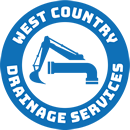The Septic Tank Regulations Guide
Did you know that there are specific septic tank regulations that must be followed to ensure the health and safety of your family and neighbours?
If you’re not familiar with these regulations, or if you’re considering installing a septic system on your property, then this guide is for you! Let’s get started!
What are Septic Tank Regulations and why are They Important?
A septic tank system is a wastewater treatment system that uses anaerobic bacteria to break down organic material in the solids.
This process creates biogas, which is burned to produce energy; the byproduct of this process is semi-solid waste called sludge, and liquid waste known as effluent. Since this wastewater sits in tanks before it is treated, there are specific rules that must be followed to protect the environment.
What Kind of Maintenance is Required to Keep Your Septic Tank Running Properly?
The interior of your septic tank should be inspected, cleaned, and pumped every three to five years.
This is important because solids can build up in the tank and prevent the wastewater from flowing out efficiently. If you don’t pump out your septic tank regularly, then sludge can begin to build up inside of it.
To protect the surrounding environment, it’s a good idea to prevent sludge from entering the ground. The best way to do this is by pumping out the tank before sludge can accumulate and enter the drain field.
Washing machine hoses should be checked regularly to ensure that they’re not leaking. A damaged hose can release large amounts of untreated wastewater into the ground, which is harmful to your septic system and the environment.
How can you Tell If There is a Problem With Your Septic Tank System?
During your annual inspection, the septic tank professional should be able to identify any problems that may exist with your system.
Septic tanks tend to back up when there is an excessive build-up of solids, or if the ground surrounding the drain field has become saturated. If you suspect that your septic tank is having a problem and you have a professional inspect it, they can provide advice about how to resolve any issues.
If you are unable to reach the inspector in time, then you should contact your local council for assistance.
Are There any Special Considerations for Homeowners in Rural Areas When it Comes to Septic Tanks and Their Regulations/Maintenance Requirements?
Septic tanks are not permitted in most rural areas, so homeowners with septic tank systems are usually required to connect their homes to a municipal sewer system.
However, if you have the financial resources available and would like a private wastewater treatment plant on your property, then it is possible to have one installed. Your council will be able to provide more information about the permitting process and the rates that you will need to pay.
What are the Consequences of not Following Septic Tank Regulations – Fines, Penalties, Etc.?
Fines for failing to follow septic tank regulations vary depending on the council, but they usually involve a monetary penalty.
Most councils will also take legal action against homeowners who do not comply with these guidelines, which could lead to further fines and even a prison sentence.
Conclusion
Septic tank regulations are in place for a reason – to protect our environment and keep us safe.
It is important to follow the regulations, as well as have your septic tank inspected and cleaned regularly. We want to help you stay informed about septic tanks and their maintenance requirements.
Contact us today if you have any questions or need assistance with maintaining your septic tank system.

